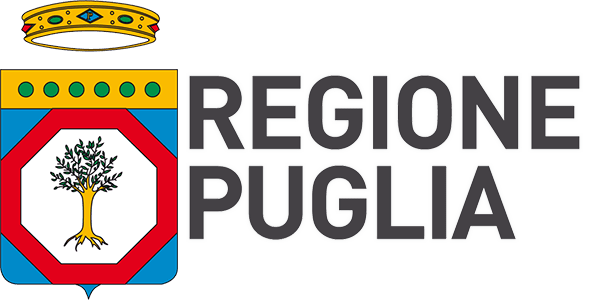3 NUOVE SOLUZIONI INNOVATIVE PER SUPERARE LE SFIDE DEL RETAIL
Offerte, ricorrenze e tanto altro: cosa muove davvero i consumatori?
Oltre 6 consumatori su 10 sono pronti a cambiare supermercato per offerte migliori. Da anni ormai i retailer sono soliti ribadire la necessità di “riportare il consumatore al centro”.
Questo si riferisce al fatto che è necessario incontrare, tramite la formulazione di offerte mirate, le esigenze dei clienti. Più facile a dirsi che a farsi ma, in un mercato dove il 62% dei clienti è disposto a cambiare supermercato per offerte migliori (Retail Insider, febbraio 2025) è fondamentale per i retailer italiani rimanere competitivi. In virtù di questa enorme volatilità, è fondamentale pensare al consumatore, il quale è influenzato da più situazioni che possono indurlo ad adottare dei comportamenti d’acquisto sempre diversi e (all’apparenza) non intercettabili. Basti pensare che ogni anno, per la Festa del Papà le vendite subiscono delle oscillazioni mai uguali: Tuidi, tramite un’elaborazione di dati interni, ha constatato come nel 2024, la vendita di prodotti come farina e preparati per dolci, abbiano registrato una diminuzione del 7% rispetto all’anno prima, quando, solitamente, il 19 marzo ha rappresentato un momento di incremento vendita di questi prodotti fino al 35%. Una delle motivazioni? Nel 2024 la vicinanza di tale festività alla Pasqua è stata un fattore determinante per la cannibalizzazione.
Come spiega Andrea Paparella – Responsabile commerciale- “Questo mostra la centralità, per i retailer, di capire il consumatore ed ogni volta “riportarlo al centro” delle proprie analisi per poter declinare un’offerta coerente ed attrattiva, che allo stesso tempo non comprometta la solidità finanziaria del distributore”
L'approccio dei modelli previsionali personalizzati
La chiave per raggiungere questo obiettivo sta nell’adozione di modelli previsionali personalizzati sviluppati tramite tecnologia Machine Learning. La soluzione sta nel prevedere le risposte di quest’ultimo tramite l’offerta che gli si propone; in altre parole, attraverso una previsione accurata della domanda.
Ed è qui che entra in gioco Delphi, la piattaforma sviluppata da Tuidi. Da anni, Delphi aiuta i retailer a prevedere la domanda in modo strategico, analizzando variabili interne (analisi scontrini, promozioni) ed esterne (meteo, eventi, festività) e adattando le previsioni alle specificità di ogni punto vendita. Questo consente di ottimizzare la gestione delle scorte e migliorare l’efficienza operativa: Tuidi ha dimostrato di essere in grado, tramite Machine Learning, di aumentare le vendite fino al +2,2% grazie alla stima precisa della domanda che scongiura rotture di stock. Ma una previsione accurata della domanda non serve solo a ottimizzare gli stock: è il pilastro su cui costruire un modello di vendita più solido e redditizio.
Il passo successivo, sulla base dei dati relativi alla domanda, è garantire prezzi competitivi: attrare i clienti, aumentare il prezzo medio di ogni scontrino, senza comprometterne la sostenibilità economica. Ad esempio, in occasione della Festa del Papà, dove la stima dei consumi - come dimostrato - non può essere standardizzata, una strategia potrebbe essere quella di mettere in promozione un prodotto chiave come le uova, essenziale per la preparazione di dolci. Da analisi interne, questa scelta potrebbe comportare un aumento delle vendite del 116%, con una conseguente erosione dei margini del 18%.
Un male necessario per il distributore? Non per forza, perché i clienti attratti dal prezzo ribassato acquistano anche altri ingredienti necessari per i dolci, amplificando l’effetto positivo sulle vendite complessive. In particolare, anche il latte è uno di questi: le referenze associate a questo prodotto sono aumentate notevolmente negli ultimi anni, con un incremento del 34% dovuto all'introduzione di nuove varianti come quelle vegetali e senza lattosio. Questo cambiamento ha comportato, però, un calo nelle vendite delle referenze tradizionali, come il latte vaccino.
Riportando l’attenzione sulla leva promozionale - un ottimo strumento per incrementare l’afflusso di clienti nel punto vendita - noteremo che: una riduzione di quasi 0,40 € sul prezzo delle uova attirerà certamente un maggior numero di consumatori. In questo scenario, diventa essenziale una gestione efficiente delle risorse umane per garantire un servizio rapido e di qualità, soprattutto nei momenti di maggior afflusso e in un mercato in cui oltre il 24% degli italiani considera inaccettabile una coda superiore ai 3 minuti (fonte: Markup).
L'intervento di Delphi nelle strategie operative
La conclusione: formulare un’esperienza di acquisto soddisfacente per un cliente non si declina, per il retailer, solo nel garantire la presenza di prodotti tramite l’approvvigionamento, ma anche (e soprattutto), nella necessità di intervenire contemporaneamente sulla gestione prezzi di vendita, varietà assortimentale e gestione del personale. Ed è qui che Delphi interviene nuovamente. Grazie ai dati raccolti e analizzati, il software permette ora di agire su questi ulteriori livelli:
- Workforce Management, per definire le necessità di risorse umane, allocando automaticamente le attività da svolgere in ogni ora della giornata, garantendo così il corretto svolgimento delle operazioni su punto vendita e riducendo i costi dovuti all’esubero di personale fino al 10%. Consente inoltre di ottimizzare la gestione del personale, prevedendo i momenti di maggiore afflusso e distribuendo le risorse in modo efficiente nei vari reparti;
- Smart Pricing, per ottimizzare le strategie di prezzo sfruttando le oltre 20.000 correlazioni nascoste tra prodotti, con l’obiettivo di recuperare margini fino al 15%;
- Smart Category, per rendere l’assortimento più dinamico in base alla domanda prevista, e poter aumentare, tramite una rotazione più frequente, le referenze fino al 25%.
“Queste nuove funzionalità di Delphi – spiega Paparella - permettono ai retailer di passare da una gestione reattiva a una gestione proattiva, differenziandosi dalla concorrenza e consolidando la propria posizione in un mercato sempre più competitivo”





